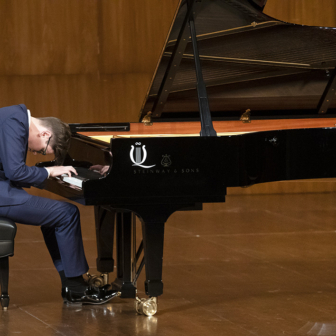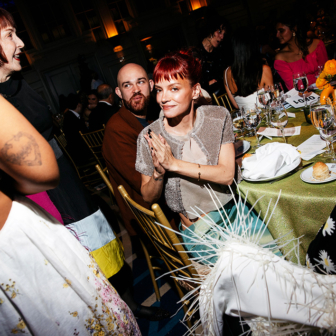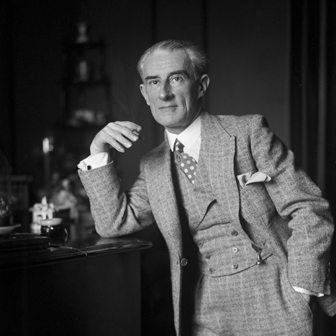Ever wondered why the Daleks in Doctor Who speak with posh English accents?
The first Dalek voices were the work of David Graham, better known today — insofar as voiceover artists are known at all — as Peppa Pig’s grandfather, a role from which he retired only recently (he is ninety-seven). With a little effort one can hear the Daleks in the pompous tones of Grandpa Pig and also the Wise Old Elf from Ben and Holly’s Little Kingdom — another Graham voice. Not that he only played posh. His range of roles for the Gerry and Sylvia Anderson “Supermarionation” series of the 1960s included Thunderbirds’ stammering American scientist Brains and the adenoidal Cockney chauffeur Parker.
I’m familiar with the sound of these voices because, after years of watching Peppa Pig and Ben and Holly with my pre– and early–primary school daughter, we are now bingeing Doctor Who. What’s more, my twelve-year-old seems to have inherited from me a fascination with actors and their voices — or more likely I primed her for it. My dad certainly primed me.
Doctor Who first aired in Britain at teatime on Saturday 23 November 1963, one day after the assassination of President Kennedy. I was there in front of the telly — well, to start with — six years old and scared. I’d like to be able to tell you that the sofa on which my daughter and I now sit to watch the later episodes is the same one I hid behind, but that sofa is half a world and half a lifetime away. Incidentally, she has a blanket that goes over her head in the scary bits.
While certainly aimed at a children’s audience, Doctor Who was always just a bit too frightening for them. I suppose that was part of its attraction. While the newer episodes seem even scarier than those of the 1960s and 70s, this may be partly a function of having scenery that doesn’t fall over and boom mics that stay out of shot.
The Daleks weren’t in the first episode in November 1963, but they’d arrived by Christmas, complete with their posh-voice threats to “Exterminate!” The incidental music to the first Dalek series was by Tristram Cary, a postwar pioneer of electronic music who would later found the electronic music studios at the Royal College of Music in London and the University of Adelaide. His ability extended beyond his electronic music compositions into film (he had written the score for that great Ealing comedy, The Ladykillers), but it was the sound of his electronic compositions that recommended him to the producers of Doctor Who.
That Doctor Who had a distinctive, futuristic sound was apparent from the first minute of Ron Grainer’s famous theme. Not that Grainer was responsible for the distinction. Grainer had turned his composition over to an in-house group of composers and technicians who worked anonymously to produce music for various series in the name of the BBC Radiophonic Workshop. The arranger of Grainer’s theme was Delia Derbyshire, who turned it into a work of musique concrète, the individual sounds recorded from various sources, sped up or slowed down and then cut together — the tape was literally cut — to assemble the theme note by note. A few years later the same thing could have been achieved with a synthesiser, but it took Derbyshire weeks.
Grainer was astonished when he heard it and attempted to give Derbyshire a co-composer credit. It was, after all, Derbyshire who had made the theme sound so arresting. But the BBC held firm to its all-for-one-and-one-for-all policy regarding the Radiophonic Workshop and so it was fifty years before Derbyshire’s name appeared in the credits of an episode of Doctor Who, by which time she was dead.
It is now decades since the Daleks were voiced by David Graham, but his orotund template has always been followed. Doctors may come and Doctors may go — stern, whimsical, self-important, self-aware — but thanks to Graham the Daleks always sound the same. Alas, this is not true of the theme, with Derbyshire’s version long since junked in favour of increasingly overblown orchestrations, which she heard and despised.
Perhaps the most remarkable thing is that when one encounters her musique concrète arrangement from fifty-nine years ago, it sounds more modern than any of the versions that followed — more futuristic, indeed. But then the creators of Doctor Who and the Daleks knew better than anyone that the sound of their program was as important as the way it looked, particularly if some of your viewers were hiding behind the couch. •




